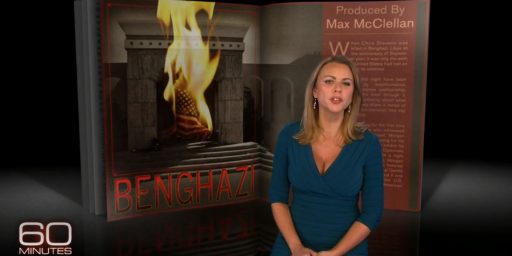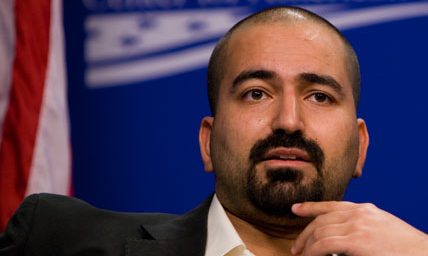FBI Plants Sham Candidate in West Virginia Race
The FBI recruited a crooked mayor to run for the West Virginia legislature as bait for vote buyers. It worked.
FBI Plants Sham Candidate in West Virginia Race (AP)
Thomas Esposito’s campaign for the Legislature seemed to be following the usual pattern. The longtime Democratic mayor issued press releases, raised money and bought newspaper ads. Signs bearing his name popped up in yards around rural Logan County. But less than a month before the May 2004 primary election, Esposito dropped out, saying he had to withdraw because of his ailing mother-in-law. The real reason surfaced only later: The FBI had planted Esposito among the field of candidates to help find evidence of vote-buying in southern West Virginia.
Federal prosecutors say the gambit worked. They allege Esposito gave $2,000 in government-supplied money to a resident who had offered to bribe voters on his behalf. They also credit the undercover sting operation for last year’s guilty pleas by the sheriff of Logan County and the police chief in the coal-mining city of Logan, who both admitted to election violations.
The chief judge of West Virginia’s southern federal court district condoned the tactic Thursday in an election fraud case against Perry French Harvey Jr., the man who allegedly accepted the $2,000. Judge David Faber rejected arguments from Harvey’s lawyer that the government had acted improperly by putting up a sham candidate.
Esposito, 54, began cooperating with investigators in July 2003, when he agreed to plead guilty to a federal corruption charge. Esposito, an attorney, had failed to notify authorities of criminal activities involving a former county magistrate. Esposito entered the state House race in January 2004, after losing his bid for a fifth term as Logan mayor. He faces up to three years in prison for the corruption charge and a $250,000 fine at his sentencing Jan. 10. His lawyer, John Carrico, did not respond to messages seeking comment Friday.
Investigators believed that “if Esposito were to become a candidate for elective office, a virtual treasure trove of evidence could result,” Assistant U.S. Attorney R. Booth Goodwin II said in a federal court filing last month. “The undercover investigation has yielded important results.” Because Esposito had not dropped out until mid-April 2004, his name remained on the May primary ballot. He received 2,175 votes, coming in last among 10 candidates.
This seems to fall well short of the line of entrapment and seems to have worked quite nicely. It might also make others who would corrupt the political process just a bit more hesitant. Esposito’s name should certainly have been withdrawn from the ballot in time to ensure that he didn’t draw votes away from legitimate candidates, though.






It does seem a little disturbing that they let this guy be on the ballot. When police are forcing people to put their names on the ballot, that impacts the rights of other candidates.
This isn’t really a big deal, but it’s one of those things where a similar situation COULD be a big deal.
I’d say that the fraud they were investigating was a larger deal.
Jesus f’ing Christ! I can understand cops setting up fake prostitutes or drug dealers or whatever to trap crooks, but what friggin’ planet do you have to be from to think setting up a _fake candidate for elected office_ is anywhere near legit?!?
You did notice, didn’t you, that even though he dropped out of the election, his name couldn’t be removed from the ballot, and he still got 2175 votes? How dare you say that this particular abuse wasn’t a ‘big deal’?!? How exactly would you feel if you were one of those 2175 voters?
I also note that there is no mention at all in the story about how Esposito’s sham campaign (shampaign?) was funded. I’d be pissed enough to learn how much taxpayer money was spent on this travesty, but what about people who actually _donated_ to this? You ‘spose they got their money back? How about their ability to trust their own government? How’s that working out for you?
Did you note what party it was who they figured would be attacting buyers?